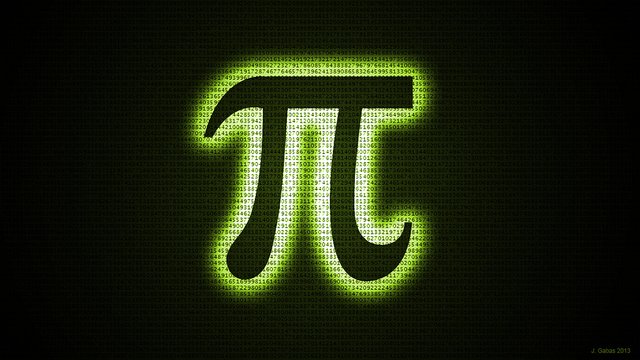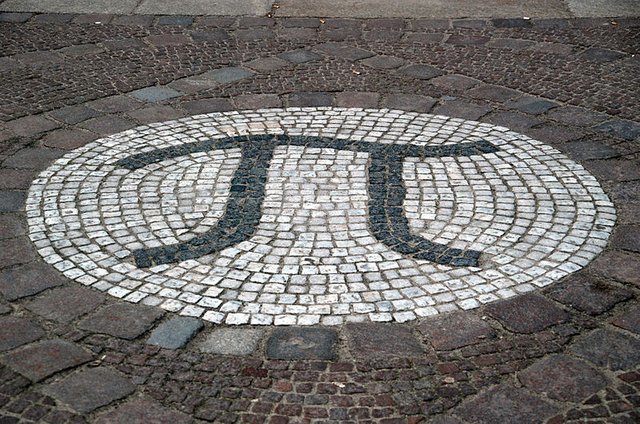The greatest enemy of knowledge is not ignorance, it is the illusion of knowledge

Imagine CC0 Creative Commons - Source
Goodbye Stephen!
Today it seems right to leave aside the scientific news, in homage to Stephen Hawking, who died today, March 14th 2018, in his home in Cambridge. We do not want to bore you by quoting facts and news that you can easily find on Wikipedia, but, rather, offer a little reflection.

Imagine CC0 Creative Commons - Source
Stephen Hawking, during his lifetime, has certainly made an enormous contribution to humanity through his research and his theories.
His extraordinary intelligence has certainly allowed us to progress, in some fields, with an impressive speed, but it is also true that, perhaps taking more time, we would have equally achieved these goals. Then, what’s the true legacy that Hawking left us?
The great lesson he left us, it’s probably the way he was able to face his life, even in the midst of difficulties, he never stopped smiling and maintaining an open mind in every issue and challenges that he faced daily.
Hawking has always managed to confront himself on different topics, always with humility and without judging or insulting his interlocutor for his different ideas. An example is certainly the science-religion debate that has accompanied him for a long time.
Often even today, we are witnessing discussion between science and religion, but Hawking has always humbly emphasized that this was not his field and couldn't always give answers, demonstrating that he had considerable knowledge also towards a subject that did not apprehend him and having the intellectual honesty to admit that his idea was not necessarily the right one.
This is probably the most impressive thing that he leaves us as inheritance.
Thanks Stephen!
Pi Day
Today, March 14th was the day of 3.141592653589793238462643383279 ... or better known Pi number or p! A number used at school to calculate the perimeter and the area of the circle. This day has been celebrated for 30 years now, on the initiative of the American physicist Larry Shaw, also called the "Prince of the Pi". But why is this number so important that it deserves a dedicated day?
The p is an unlimited and non periodic number, composed of an infinite number of digits that find numerous applications for the functioning of our society.
It is used: in physics, in electromagnetism, in the functioning of our electronic devices (such as smartphones and PCs) for the study of electromagnetic waves and in the calculation of satellite orbits. We must not forget, its important role in the development of quantum mechanics, a fascinating subject that is always developing, which without this number could not have existed.

Imagine CC0 Creative Commons - Source
Post of today

Imagine CC0 Creative Commons - Source
A funny idea, in a sad day. @targodan gives a tribute to the disappearance of Stephen Hawking, before explaining the p and showing us how it could be if expressed with notes instead of numbers.

Immagine CC0 Creative Commons, si ringrazia @mrazura per il logo ITASTEM.
CLICK HERE AND VOTE FOR DAVINCI.WITNESS
Keep in mind that for organizational reasons it’s necessary to use the “steemstem” and “davinci-times” tags to be voted.
@aboutcoolscience - @farmacistasmz - @spaghettiscience
Il più grande nemico della conoscenza non è l'ignoranza, ma l'illusione della conoscenza

Imagine CC0 Creative Commons - Source
Goodbye Stephen!
Oggi ci sembra giusto lasciare da parte le news scientifiche per rendere omaggio a Stephen Hawking, che nella mattina di oggi, 14 marzo 2018, si è spento nella sua casa di Cambridge.
Non vogliamo annoiarvi citando fatti e notizie che potete tranquillamente trovare su Wikipedia ma, piuttosto, offrirvi una piccola riflessione.

Imagine CC0 Creative Commons - Source
Oggi ci sembra giusto lasciare da parte le news scientifiche per rendere omaggio a Stephen Hawking, che nella mattina di oggi, 14 marzo 2018, si è spento nella sua casa di Cambridge.
Non vogliamo annoiarvi citando fatti e notizie che potete tranquillamente trovare su Wikipedia ma, piuttosto, offrirvi una piccola riflessione.
Stephen Hawking, durante la sua vita, ha sicuramente dato un enorme contributo all'umanità attraverso le sue ricerche e le sue teorie. La sua intelligenza fuori dal comune ci ha sicuramente permesso di progredire, in alcuni campi, con un velocità impressionante; ma è altrettanto vero che, probabilmente, avremmo ugualmente raggiunto questi traguardi, magari impiegando più tempo.
Qual'è allora la vera eredità che Hawking ci ha lasciato?
Il grande insegnamento che ci ha lasciato risiede probabilmente nel modo in cui è stato capace di affrontare la sua vita, pur in mezzo alle difficoltà, senza mai smettere di sorridere e mantenendo sempre (e lo sottolineiamo) la mente aperta rispetto alle questioni e alle sfide che ogni giorno gli venivano poste davanti. Hawking è sempre riuscito a confrontarsi su temi a lui lontani con grande cognizione di causa, con umiltà e senza giudicare o insultare il proprio interlocutore per le sue idee diverse.
Un esempio è sicuramente il dibattito scienza-religione che lo ha accompagnato a lungo. Mentre ancora oggi, spesso, assistiamo a discussioni in cui la religione alza i toni rispetto alla scienza, e viceversa, Hawking ha sempre sottolineato con umiltà come questo non fosse il suo campo e non fosse nella posizione di dare risposte certe, dimostrando, comunque, di avere notevoli conoscenze anche circa un argomento che non lì apparteneva, e avendo l'onestà intellettuale di ammettere che la sua idea non era necessariamente quella giusta.
Questa è probabilmente la cosa più importante che oggi ci lascia in eredità.
Grazie Stephen!
Pi Day
Oggi, 14 marzo è stato il giorno del 3,141592653589793238462643383279… o meglio conosciuto Pi Greco o p! Un numero usato a scuola per calcolare il perimetro e l'area del cerchio.
Questo giorno viene celebrato ormai da 30 anni, per iniziativa del fisico statunitense Larry Shaw, chiamato il "Principe del Pi Greco". Ma perché questo numero è così importante da meritare una giornata dedicata? Il p è un numero illimitato e non periodico, composto da un numero infinito di cifre che trova numerose applicazioni per il funzionamento della nostra società.
Esso viene usato: in fisica, nell'elettromagnetismo, nel funzionamento dei nostri apparecchi elettronici (come lo smartphone e pc) per lo studio delle onde elettromagnetiche e nel calcolo delle orbite dei satelliti. Non dimentichiamoci, il suo importante ruolo nello sviluppo della meccanica quantistica, una materia affascinante e sempre in via di sviluppo, la quale senza questo numero non sarebbe potuta esistere.
Esso viene usato: in fisica, nell'elettromagnetismo, nel funzionamento dei nostri apparecchi elettronici (come lo smartphone e pc) per lo studio delle onde elettromagnetiche e nel calcolo delle orbite dei satelliti. Non dimentichiamoci, il suo importante ruolo nello sviluppo della meccanica quantistica, una materia affascinante e sempre in via di sviluppo, la quale senza questo numero non sarebbe potuta esistere.

Imagine CC0 Creative Commons - Source
Post del giorno

Imagine CC0 Creative Commons - Source
Un'idea divertente, in un giorno triste. @targodan rende omaggio alla scomparsa di Stephen Hawking, prima di spiegarci il p-greco e di mostrarci come questo potrebbe essere se espresso con note, invece che con numeri.

Immagine CC0 Creative Commons, si ringrazia @mrazura per il logo ITASTEM.
CLICK HERE AND VOTE FOR DAVINCI.WITNESS
Tenete presente che per motivi organizzativi è necessario utilizzare le tag “steemstem” e “davinci-times” per essere votati.
@aboutcoolscience - @farmacistasmz - @spaghettiscience
Articoli interessanti e di grandissimo valore! Un abbraccio a Hawking, uomo straordinario! Un saluto giornalista
Downvoting a post can decrease pending rewards and make it less visible. Common reasons:
Submit